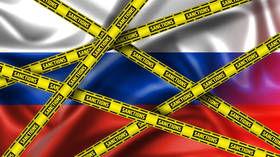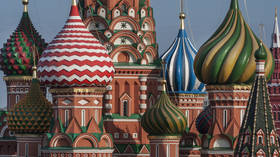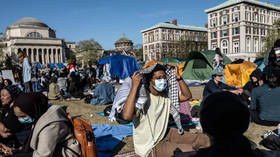Countries can benefit by refusing to sanction Russia – Bank of Canada

Nations can benefit by refusing to support Western sanctions against Russia, analysts at the Bank of Canada have claimed in a recent research paper.
In a publication released last week titled ‘International Economic Sanctions and Third-Country Effects’, experts compared the impact of sanctions on Russia, as well as their effect on ‘sanctioning’ parties such as the US, EU, and UK, and large ‘third-party’ economies including China, India, and Türkiye.
The calculations were based on three types of sanctions: export-import bans, financial market restrictions, and energy embargoes.
According to the analysts’ projections, while sanctions will dampen Russia’s economic momentum, their effect depends on whether third countries join Western states in imposing restrictions.
Researchers estimated that with the simultaneous Western application of sanctions, Russia’s GDP would shrink by about 4% compared to a hypothetical situation without restrictions. However, they claimed that if third-party countries introduced similar measures, Russia’s GDP would decline by 9%.
The analysts also estimated that restrictions would cause a 0.8% downturn in the sanctioning countries’ economies. However, this effect would double if third countries remain out of the sanctions war.
Third-country economies, on the other hand, are expected to benefit from shunning sanctions due to “substitution effects,” the researchers claimed. Restrictions on Russia provide them with an opportunity to step in as alternative suppliers, as well as to substitute Russian products in the markets of the sanctioning states. This would eventually lead to an estimated 0.4% growth in these countries’ GDPs.
Analysts polled by the RBK news outlet said the study highlights the importance of economic ties between Russia and its major trade partners – China, India and Türkiye. However, some experts also noted that the calculations did not take into account Russia’s import-substitution and parallel imports mechanisms, which have been instrumental in allowing the Russian economy to rebound from last year’s 2.1% drop in GDP.
The Russian economy is expected to grow by 2.5% by the end of 2023, Finance Minister Anton Siluanov predicted in late August. Western experts have also painted a favorable outlook for the country, with the World Bank, the IMF, and Barclays bank recently raising their forecasts for Russia’s GDP amid strong trade and industrial production and higher-than-expected energy revenues.
For more stories on economy & finance visit RT's business section













